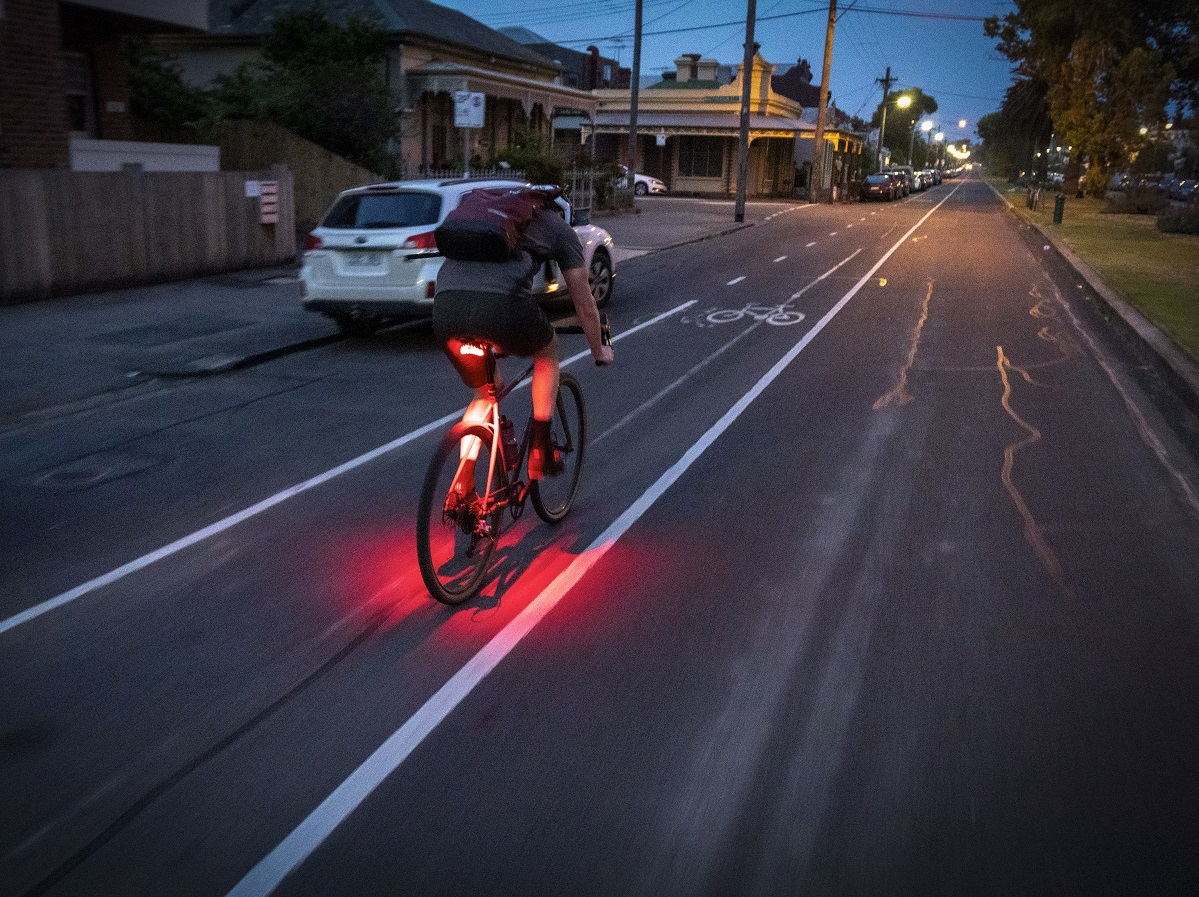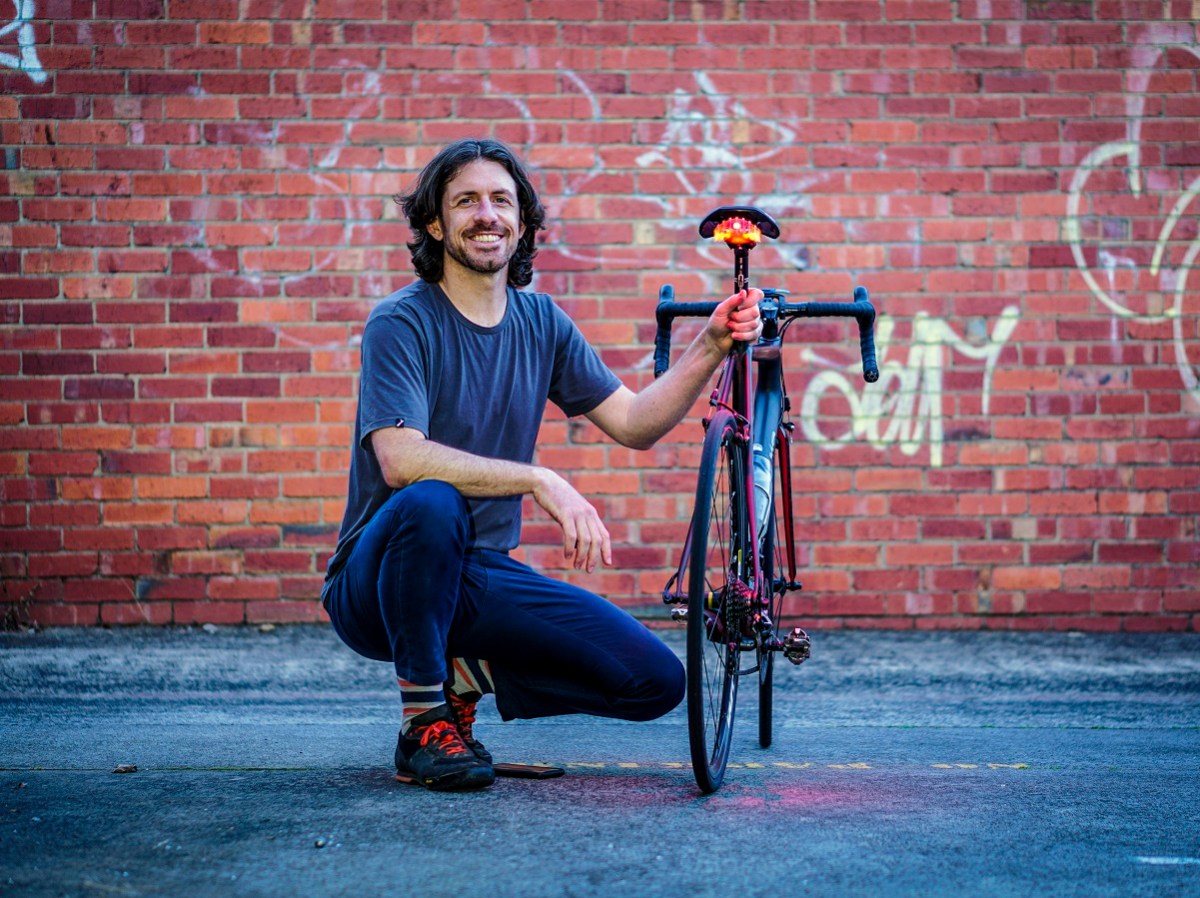Tim Ottaway has been crowned the Australian national winner of this year’s James Dyson Award with his Project Flock bike light that attempts to solve road cyclist injuries and fatalities by helping cyclists become more visible.
The runners up were E.Cue, a smart device designed to support individuals with Autism Spectrum Disorder submitted by Chloe Leigh-Smith from Melbourne’s RMIT University and Quito, a sustainable CO2 based mosquito trap designed by Kennyjie from Melbourne’s Swinburne University of Technology.
The Australian judges – Professor Veena Sahajwalla, director of SM@RT Centre at UNSW, Felicity Furey, business leader, entrepreneur and engineer, and Ryan Tilley, co-founder of Gecko Traxx, and 2019 Australian national winner and international runner up – reviewed over 40 entries from university students and graduates with a record number of Australian entries received.
The Project Flock bike light consists of a range of compact, high powered LEDs that project onto the rider’s moving legs (biomotion lighting) and the ground, as well as a rear-facing element.
By using smart sensors inside the Project Flock Light, an Adaptive Lighting Engine automatically adjusts lighting output to be as noticeable as possible, whether on a shared path or a busy road. The Project Flock Light effortlessly changes and reacts to its environment, so the rider is highly noticeable.

Commenting on his project, Tim said: “Safety is one of the biggest barriers for many people wanting to ride bikes and if we want to move towards more sustainable modes of transportation, the issue of safety needs to be meaningfully addressed.
“The significant increase in Australians taking up cycling during the COVID-19 pandemic has been a big motivating factor in me redoubling my efforts to get the Project Flock bike light in the hands of cyclists around Australia. Project Flock became a start-up in May earlier this year, and we are hoping to launch on a crowdfunding platform soon.”
“The Flock bike light can’t solve all issues associated with cycling safety however, it is a starting point. The bigger picture is about helping to educate and change infrastructure to make roads and paths a safer and more positive place for all users, particularly those who are more vulnerable including cyclists and pedestrians.”
As national winner of the James Dyson Award, Tim will receive $3,500 to go towards his project. All three finalists will move on to the international stage where a Top 20 will be selected by a panel of Dyson engineers.
The international winner and sustainability winner will be handpicked by Sir James Dyson, with the international winner receiving $55,000 and $9,500 for their university, and the sustainability winner receiving $55,000. Winners will be announced on 19November, 2020.

